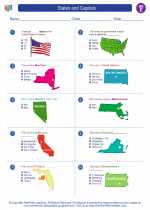Water: An Essential Resource
Water is a vital resource for all living organisms and plays a crucial role in various aspects of human life and the environment.
Properties of Water
Water has unique properties that make it essential for life:
- Universal Solvent: Water can dissolve a wide range of substances, making it an excellent solvent for chemical reactions and biological processes.
- High Surface Tension: Water molecules are cohesive, allowing them to stick together and form droplets, which is important for processes such as capillary action in plants.
- High Heat Capacity: Water can absorb and store a large amount of heat, helping to moderate temperature changes in the environment and living organisms.
Importance of Water
Water serves several critical functions:
- Drinking and Hydration: Water is essential for human survival, as it is necessary for bodily functions and maintaining health.
- Agriculture: Water is crucial for irrigation and crop production, playing a key role in food security.
- Industry and Energy: Water is used in various industrial processes and power generation, making it vital for economic activities.
- Ecological Balance: Water sustains diverse ecosystems and habitats, supporting the survival of plant and animal species.
Water Cycle
The water cycle describes the continuous movement of water on, above, and below the surface of the Earth. It involves processes such as evaporation, condensation, precipitation, and runoff, and is essential for maintaining the planet's water supply.
Conservation and Management
Due to the importance of water, conservation and sustainable management practices are crucial to ensure its availability for future generations. This includes measures such as reducing water waste, protecting water sources, and promoting efficient water use in agriculture, industry, and households.
Conclusion
Water is a precious and indispensable resource that requires responsible stewardship to meet the needs of present and future generations. Understanding its properties, importance, and the need for conservation is vital for addressing global water challenges.
.◂Social Studies Worksheets and Study Guides Fifth Grade. States and Capitals

 Worksheet/Answer key
Worksheet/Answer key
 Worksheet/Answer key
Worksheet/Answer key
 Worksheet/Answer key
Worksheet/Answer key
